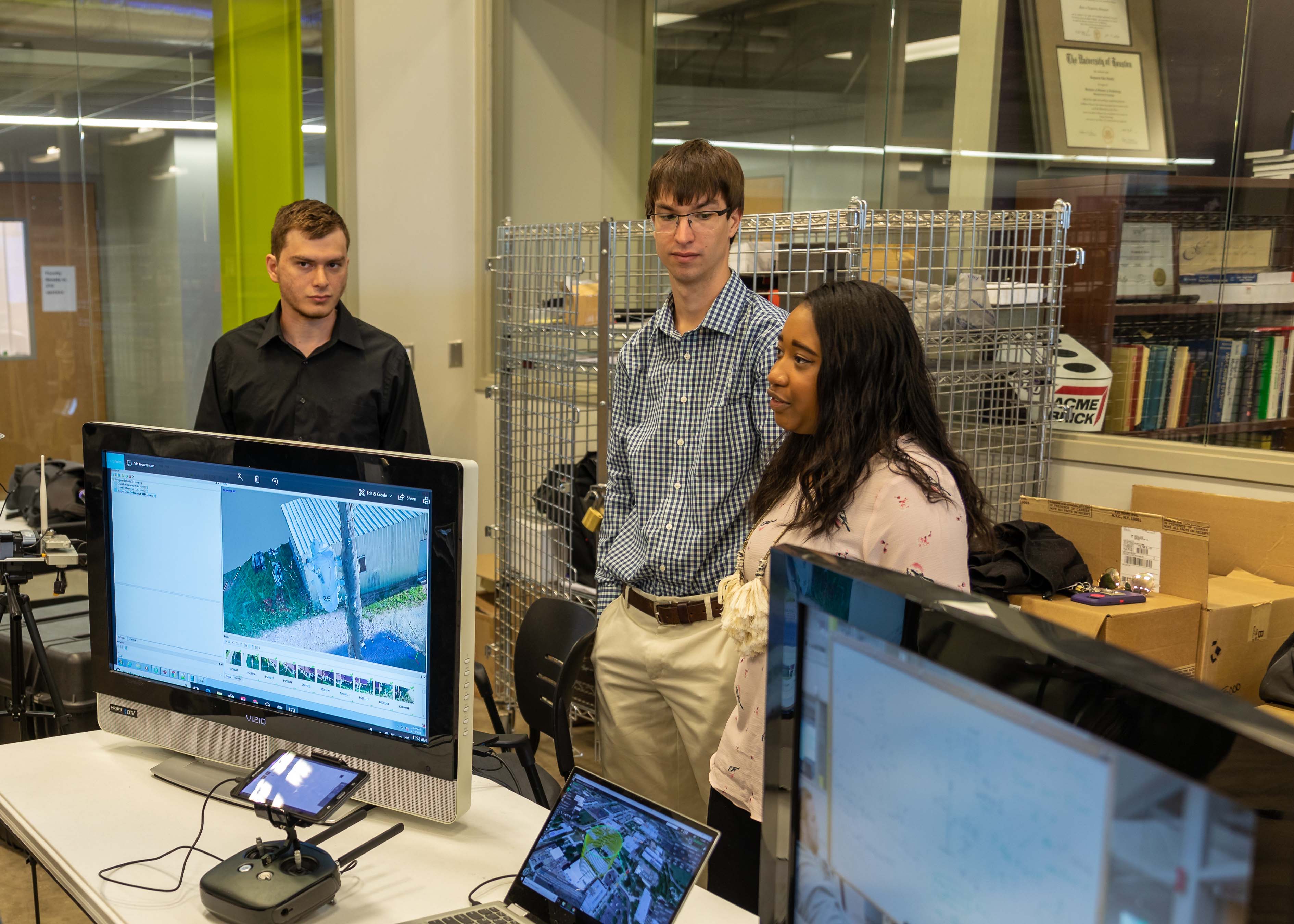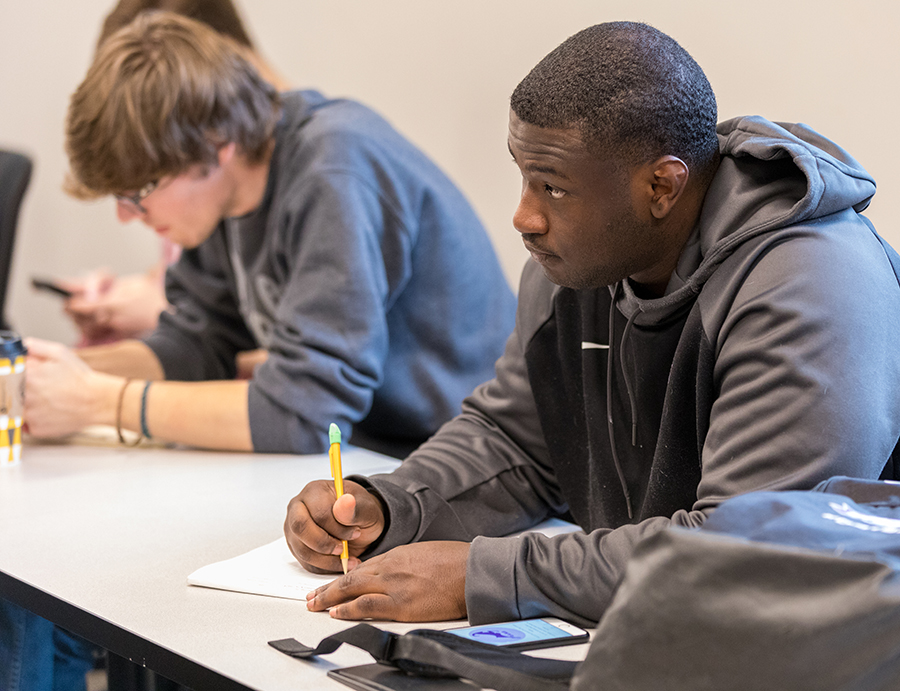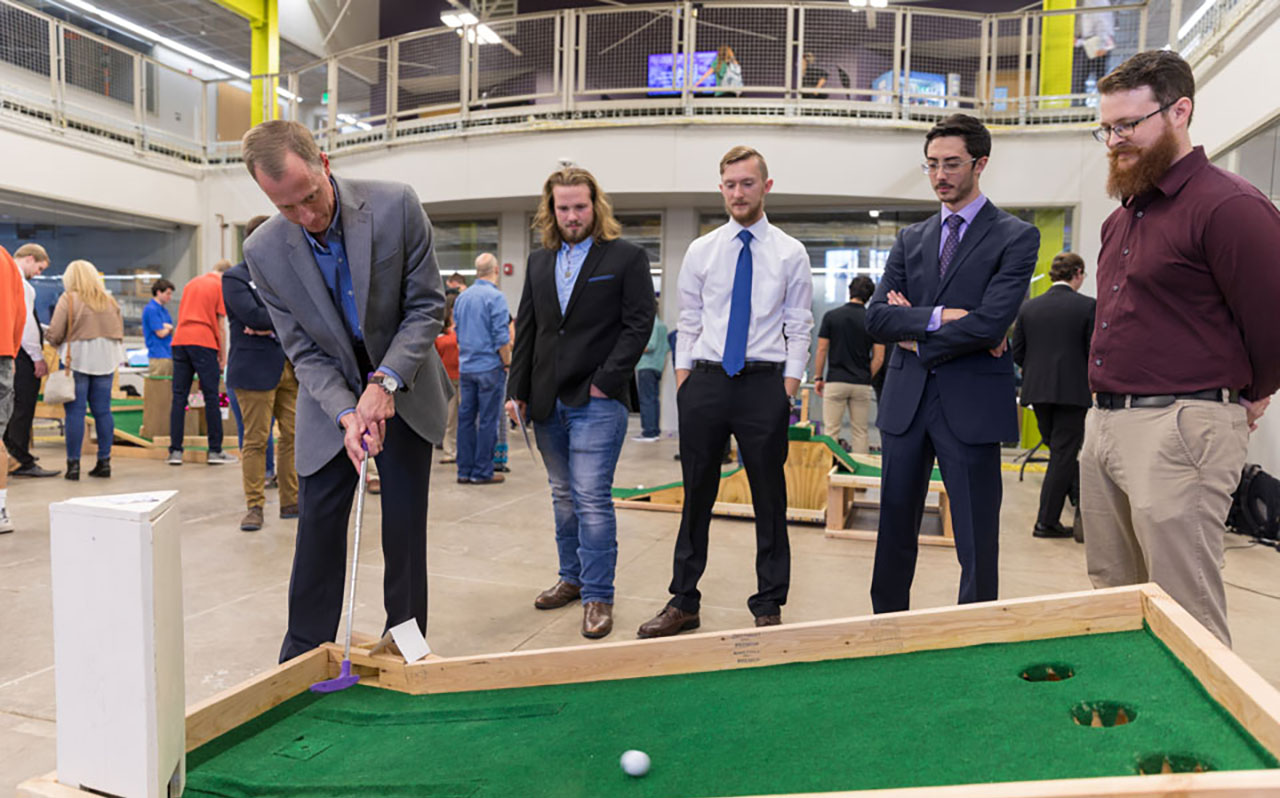Bachelor of Science in Engineering
Your possibilities are limitless with a BSE engineering degree from ACU.
Engineering uses science, math, economics, social and practical knowledge to solve real-world problems. Engineers improve transportation, develop better nanotechnologies for healthcare, design electrical systems, protect the environment, purify drinking water, streamline manufacturing and harness nuclear energy, among many other undertakings.
In ACU’s prestigiously accredited engineering program, you will also develop the practical skills to help you succeed as an engineer: the ability to speak persuasively, the ability to go into the workshop to make and test things, and the ability to work effectively in teams. We offer a Bachelor of Science in Engineering, with elective offerings in Mechanical, Civil, and Electrical Engineering. Engineering courses include Thermodynamics, Embedded Systems, Fluid Mechanics and Digital Logic.


What can you do after graduation?
- Mechanical Engineer
- Civil Engineer
- Manufacturing Engineer
- Industrial Engineer
- Structural Engineer
- Electrical Engineer
- Field Engineer
- Environmental Engineer
- Missions/Humanitarian Engineer
- Project Manager
- Process Engineer
- Plant Engineer
- Production Engineer
Experiential Learning Opportunities
Learning about engineering and physics means using science, math, economics, social and practical knowledge to solve real-world problems. For students in ACU’s Department of Engineering and Physics, it also means using their knowledge to help others in the community and around the world.


Engineering class project turns into real-world missions experience
Garrett Rhoden learned something he wasn’t expecting to learn in an engineering class: He has a heart for missions. The realization came after a trip to Honduras where he and his classmates constructed latrines and a water delivery system they had designed to help a village there.

Gibbs keeps projects running smoothly at ACU’s NEXT Lab
Before coming from California to ACU, Rosario Gibbs was an engineer at The Boeing Company, working on technology to develop smaller satellites. It was a world vastly different from academia but in need of someone with Gibbs’ skills. Now she puts her expertise to use as project manager for NEXT Lab.

Engineering, physics students make learning fun
Learning about engineering and physics means using science, math, economics, social and practical knowledge to solve real-world problems. For students in ACU’s Department of Engineering and Physics, it also means using their knowledge to make learning fun for local school children.
Accreditation
ACU’s undergraduate engineering program has been accredited by the Engineering Accreditation Commission of ABET for college and university programs in applied science, computing, engineering and engineering technology.
ABET accreditation assures that programs meet standards to produce graduates ready to enter critical technical fields that are leading the way in innovation and emerging technologies, and anticipating the welfare and safety needs of the public.
Once you graduate from ACU with a Bachelor of Science in Engineering, you will be equipped to work in a number of engineering positions.
Objectives and Outcomes
Program Educational Objectives
The ACU engineering program strongly supports the university's mission of educating students for Christian service and leadership throughout the world. In support of the university mission and in response to the needs of program constituents, the Program Educational Objectives (PEOs) are that within a few years of graduation:
- Alumni are succeeding in engineering practice or other diverse fields that value analytical, problem solving, and professional practice skills.
- Alumni are engaging in life-long learning that builds upon foundational knowledge acquired in their undergraduate education through graduate study, career-specific or other professional training.
- Almuni are glorifying God through thoughtful integration of work and life facilitating service to others through their profession.
Student Outcomes
The following student outcomes will prepare ACU engineering students to attain the program educational objectives:
- an ability to identify, formulate, and solve complex engineering problems by applying principles of engineering, science, and mathematics
- an ability to apply engineering design to produce solutions that meet specified needs with consideration of public health, safety, and welfare, as well as global, cultural, social, environmental, and economic factors
- an ability to communicate effectively with a range of audiences
- an ability to recognize ethical and professional responsibilities in engineering situations and make informed judgments, which must consider the impact of engineering solutions in global, economic, environmental, and societal contexts
- an ability to function effectively on a team whose members together provide leadership, create a collaborative and inclusive environment, establish goals, plan tasks, and meet objectives
- an ability to develop and conduct appropriate experimentation, analyze and interpret data, and use engineering judgment to draw conclusions
- an ability to acquire and apply new knowledge as needed, using appropriate learning strategies.
Degree Details
Required Hours
University Requirements: 56 credit hours + Major Requirements: 72 credit hours + Electives: 0 credit hours = Total Required: 128 credit hours
Example Coursework
Thermodynamics
Embedded Systems
Fluid Mechanics
Digital Logic
Department
Engineering and Physics
Application Deadlines
Early Bird: November 1st
Regular: February 1st
National Candidates: May 1st

